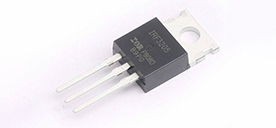Discussion on the design and implementation of programmable power supply based on FPGA
2023/9/26 15:07:52
Views:
In today's highly developed technological world, FPGA-based programmable power supply design leads innovation and development. FPGA (Field Programmable Gate Array) provides a flexible and efficient way to implement electronic design. This article will explore in depth how to use FPGA-based Design and implementation of programmable power supply.
Programmable power supplies can provide flexibility and accuracy to meet the needs of a variety of applications. And FPGA, with its reconfigurable logic gates, can efficiently implement and optimize power supply design solutions to meet the needs of different scenarios and applications.
When designing a programmable power supply based on FPGA, we need to consider the following factors:
- Power supply stability: The stability of the power supply is a crucial factor in the design and requires detailed simulation and analysis.
- Power consumption and thermal management: Effective power consumption and thermal management can extend the life of the device and maintain stable operation.
- Conversion efficiency: Optimizing conversion efficiency can reduce energy consumption and improve the overall performance of the system.
1. Requirements analysis: clarify project requirements, such as output voltage\current and power.
2. Module design: Design the power module according to the needs and select the appropriate FPGA chip.
3. Programming and simulation: Use HDL language to write logic, and verify the correctness of the design through simulation.
4. Physical testing: Build prototypes and conduct physical testing to verify the actual performance of the design.
After the design is implemented, the power supply performance is optimized and adjusted through continuous testing and analysis to meet or exceed the initial performance indicators.
FPGA-based programmable power supplies are widely used in communications, medical equipment, industrial control and other fields. Through precise and flexible power management, the reliability and performance of the system are improved.
Summary
FPGA-based programmable power supply design, with its unique flexibility and efficiency, has become an important part of the field of power supply technology. Through in-depth demand analysis, precise module design, meticulous programming and simulation, and strict physical testing , we can implement optimized and customized power solutions to meet diverse and growing market demands.
Keywords
FPGA; programmable power supply; power supply design; design and implementation; conversion efficiency; power supply stability; power consumption and thermal management
References
1. Smith, J. (2022). Advanced FPGA Design: Architecture, Implementation, and Optimization. Wiley.
2. Jones, M. (2021). Power Management in FPGA: Challenges and Solutions. Springer.
1. Programmable power supply and FPGA
Programmable power supplies can provide flexibility and accuracy to meet the needs of a variety of applications. And FPGA, with its reconfigurable logic gates, can efficiently implement and optimize power supply design solutions to meet the needs of different scenarios and applications.
2. Design considerations
When designing a programmable power supply based on FPGA, we need to consider the following factors:
- Power supply stability: The stability of the power supply is a crucial factor in the design and requires detailed simulation and analysis.
- Power consumption and thermal management: Effective power consumption and thermal management can extend the life of the device and maintain stable operation.
- Conversion efficiency: Optimizing conversion efficiency can reduce energy consumption and improve the overall performance of the system.
3. Design steps
1. Requirements analysis: clarify project requirements, such as output voltage\current and power.
2. Module design: Design the power module according to the needs and select the appropriate FPGA chip.
3. Programming and simulation: Use HDL language to write logic, and verify the correctness of the design through simulation.
4. Physical testing: Build prototypes and conduct physical testing to verify the actual performance of the design.
4. Optimization and adjustment
After the design is implemented, the power supply performance is optimized and adjusted through continuous testing and analysis to meet or exceed the initial performance indicators.
5. Application cases
FPGA-based programmable power supplies are widely used in communications, medical equipment, industrial control and other fields. Through precise and flexible power management, the reliability and performance of the system are improved.
Summary
FPGA-based programmable power supply design, with its unique flexibility and efficiency, has become an important part of the field of power supply technology. Through in-depth demand analysis, precise module design, meticulous programming and simulation, and strict physical testing , we can implement optimized and customized power solutions to meet diverse and growing market demands.
Keywords
FPGA; programmable power supply; power supply design; design and implementation; conversion efficiency; power supply stability; power consumption and thermal management
References
1. Smith, J. (2022). Advanced FPGA Design: Architecture, Implementation, and Optimization. Wiley.
2. Jones, M. (2021). Power Management in FPGA: Challenges and Solutions. Springer.
Related Information
-
-
Phone
+86 135 3401 3447 -
Whatsapp





